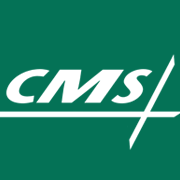CMS Rule Addresses Medicare Fraud, Overpayment Compliance
A new proposed final rule from CMS aims to diminish cost burden for healthcare providers. CMS proposes several Medicare reporting and overpayment mandates.

- The Centers for Medicare & Medicaid Services (CMS) published a final rule this week focused on improving Medicare compliance, reporting, and self-identified overpayments to ultimately combat Medicare fraud.

Under CMS-6037-F, Medicare Part A and Medicare Part B healthcare providers must report and return overpayments according to a variety of guidelines.
CMS established a specific timeline within the 132 page rule as “the later of the date that is 60 days after the date an overpayment was identified, or the date due of any [applicable] corresponding cost report.”
Overpayments must be reported and returned if identified within a 6 year window from when they were received.
CMS explained this limitation means both providers and suppliers will not experience as much unreasonable cost burden.
These mandates were created to ensure applicable statute compliance, advance the delivery of high quality care, and help defend the Medicare Trust Funds from fraud, CMS stated.
“This rule provides needed clarity and consistency in the reporting and returning of self-identified overpayments,” the rule explained.
But even without this rule, providers are not immune to potential False Claims Act liability or Civil Monetary Penalties Law liability, CMS said.
Nor are they excluded from federal healthcare programs for not reporting and returning overpayments.
“[Providers] continue to be required to comply with our current procedures when we, or our contractors, determine an overpayment and issue a demand letter,” the rule clarified.
The Affordable Care Act connection
CMS explained the proposed rule is tied to several new sections of the Affordable Care Act (ACA) – 1128J9(d)(1-3).
CMS’s proposed rule implements provisions from this segment of the ACA for Medicare Part A and B providers and suppliers.
Segments 1128J9(1-3) require someone who has received an overpayment to report and return it and to also explain reason for overpayment, CMS said.
Additionally, the ACA requires overpayment be reported and returned on a given date.
And, the regulation specifies any overpayment retained after the deadline for reporting and returning an overpayment “is an obligation,” CMS clarified.
Commenters express support, suggest changes
The 132 page proposed rule contained a great deal of summarized conversation between commenters and CMS.
CMS stated that in summation, commenters “generally agreed that providers and suppliers should promptly refund overpayments and maintain efforts to prevent and detect improper payments.”
Supportive commenters said the rule will hopefully reduce improper payments and ensure the Medicare Trust Funds’ overall sustainability, CMS added.
“Some commenters stated they were pleased that CMS issued the proposed rule and believed it would motivate providers and suppliers to educate billing staff and practitioners on Medicare billing rules.”
However, commenters also had a number of concerns and suggestions, which CMS responded to.
Here are two highlights from the extensive dialogue that are particularly worthy of note.
First, some commenters expressed unease regarding the proposed rule’s limitations to Medicare Parts A and B.
Some commenters felt “CMS did not articulate any statutory authority or rationale for creating this distinction and narrowing the scope of the proposed rule to Medicare Part A and Part B providers and suppliers," said CMS.
Commenters also asserted CMS’s proposed rule demands more cohesion, especially since many healthcare providers submit claims to many different places – i.e. Medicaid, Medicare Part A, Part B, Part C managed care plans, and Part D plan sponsors.
Commenters urged “CMS include all of Medicare and Medicaid in the final rule or quickly issue other proposed rules so all providers and suppliers have guidance on their obligations and are treated equally.”
Secondly, some commenters requested for the exclusion of overpayments not caused by a provider or supply when an error occurred that was simply beyond their control.
Commenters said certain erroneous situations arise that are not necessarily of their doing – such as a CMS system error where a Medicare beneficiary is incorrectly classified as fee-for-service – that result in inaccurate payments.
“We disagree with the commenters that certain types of payments, including those made as a result of an error by any particular party, should be excluded from the definition of an overpayment,” CMS responded.
“We do not believe it is necessary for providers or suppliers to make determinations regarding whether they were the cause of an overpayment in lieu of reporting and returning any identified overpayments as required by this rule.”
CMS describes how to report and return overpayments
“This final rule provides that providers and suppliers must use an applicable claims adjustment, credit balance, self‑reported refund, or another appropriate process to satisfy the obligation to report and return overpayments,” CMS explained.
“This approach for returning overpayments provides an array of familiar options from which providers and suppliers can select.”
“This rule also provides that if a health care provider or supplier has reported a self-identified overpayment[,] … the provider or supplier is considered to be in compliance with the provisions of this rule as long as they are actively engaged in the respective protocol.”
